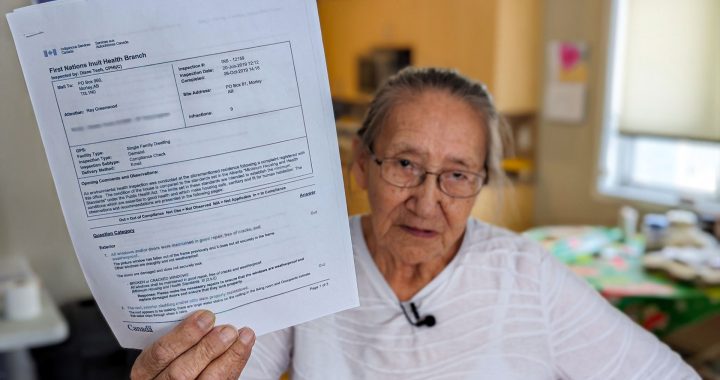Trina Roache
APTN National News
It was an historic day for the Mi’kmaq as the Government of Nova Scotia gave a full pardon and apology for the conviction of the late Grand Chief Gabriel Sylliboy.
“This day today,” said Barbara Sylliboy, granddaughter of the grand chief. “It is also like a vindication for the Mi’kmaq Nation all across the Atlantic region.”
In 1927, Sylliboy was charged with trapping muskrats out of season. But the grand chief of the Mi’kmaq Grand Council knew he had treaty rights to hunt and fish unhindered. So he fought the charges in court and went to trial a year later.
“It was important that we had a Mi’kmaw person take that stand way back in 1928,” said Jaime Battiste, Treaty Education Lead for Nova Scotia. “Even though the justice system of the day had no ability or no desire to side with the Mi’kmaq at that time.”
Sylliboy lost his case in 1928.
But it marked a shift in the legal strategy of the Mi’kmaq Grand Council that would eventually lead to major victories at the Supreme Court of Canada. The most well-known case upholding treaty rights is the Donald Marshall decision in 1999.
The Supreme Court did overturn Sylliboy’s conviction in 1985. But the pardon and apology from the province go farther.
“Reconciliation begins by acknowledging the wrong today,” said Nova Scotia Premier Stephen McNeil.
During the ceremony, the premier offered his “deepest apologies” and shook hands with the grand chief’s grandson George Sylliboy.
“Kind of late but it was nice,” said Sylliboy, who spoke in Mi’kmaq about how his grandfather always knew the Mi’kmaq had a right to hunt and fish.
William Wicken, a history professor at York University has written about the case in his book The Colonization of Mi’kmaw Memory and History, 1794-1928.
He said Sylliboy was ahead of his time. He was the first Mi’kmaw person on record to take his treaty rights into the courtroom. Six Mi’kmaq men testified in what could be the first use of Indigenous oral history in court.
“In 1928, when this case was heard on appeal I don’t think Judge Patterson really took it that seriously,” said Wicken. “He was interested. But in his judgement, he talked about the Mi’kmaq as a savage people and therefore not having the capacity to sign a treaty with the British.”
“It was a different time. Racism was part of our province, not something we should be proud of but it’s what it was,” said Mcneil. “Not only was grand chief Gabriel wronged in the courts, he was wronged in the eyes of communities.”
The pardon is only the second to be granted in the province.
“It is a true acknowledgment of the wrong,” said McNeil. “And it’s my hope that it is accepted by the Mi’kmaw community in the spirit with which it is given, that the grand chief fought and defended the rights of the treaties. We believe in the rights of the treaties.”
Sylliboy died in 1964.
“It was always a stain on his legacy,” said Battiste, who has extensively researched Sylliboy’s case. “The family and people who knew him closely had told me that he went to his deathbed believing that he let the Mi’kmaq Nation down.”
Battiste sees Sylliboy as a symbol of strength.
“Despite courts telling us otherwise, despite being put in residential schools, despite centralization, despite everything that the Mi’kmaq had gone through,” said Battiste. “We never gave up on the notion or the idea that we had these rights.”
Antle Denny is Grand Keptin of the Mi’kmaq Grand Council. He calls the pardon monumental. And now the job is to keep Sylliboy’s legacy alive.
“He wanted to protect not only our rights but to make sure our laws are also followed,” said Denny. “We’ve never given up any of our laws in any of our treaties. And that is something, looking at the 150th Anniversary of Canada, of Confederation, that we have to start looking at that.”
The word of the day often repeated was reconciliation. Denny said the pardon is on the right path, but there’s still a long way to go.
“Apajigsua’latl, in Mi’kmaq,” said Denny. “Reconciliation is a step forward, helping each other, working together. And that’s what we have to do. We can’t have anything dictated. We’re not their subjects. We’re their allies.”
For Battiste, who’s working on pushing treaty education into mainstream classrooms, wants to make sure everyone knows the true story of Gabriel Sylliboy.
“It’s a different narrative now saying that yes we realize he was right all along. We’re bringing light to someone who was very respected, very revered by the Mi’kmaq,” said Battiste. “Now we’re changing the story of this from being a totally loss and failure to being something we can be proud of as Mi’kmaq moving forward.”









